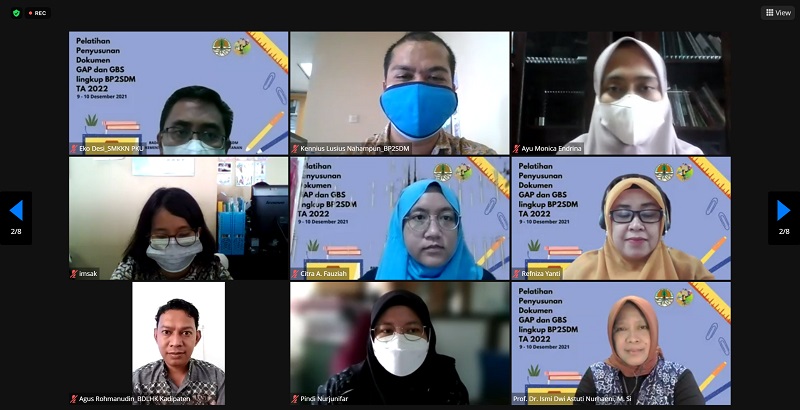
Gender mainstreaming (PUG) in relation to development begins with the planning and budgeting process. Planning and budgeting documents with a clear gender perspective should be able to accommodate equality between men and women in terms of access, benefits and participation in decision-making in order to benefit development outcomes. Two of the gender analysis tools available in the planning and budgeting process are the Gender Analysis Pathway (GAP) and the Gender Budget Statement (GBS).
The PUG Sub-Working Group (WG) of the Human Resources Extension and Development Agency (BP2SDM) at the Ministry of Environment and Forestry (MoEF) is continuing to support the implementation of PUG at the policy, program and activity levels by encouraging all policy documents to incorporate a gender perspective. To this end, FORCLIME has offered its support for the PUG Sub-WG in BP2SDM as regards the implementation of training sessions on the development of GAP and GBS for BP2SDM activities and programs during 2022.
An online training session which dealt with these issues was held from Thursday 9 – Friday 10 December 2021 and was attended by 77 participants from the BP2SDM working unit and Balai Taman Nasional Wasur. The training opened with a number of remarks from Drs Ade Palguna, Secretary of BP2SDM, who expressed his expectation that PUG activities would continue to be developed and that champions would be created through the PUG training of trainers. A speech was also given by Dr Ir. Apik Karyana, M.Sc. the Head of the Planning Bureau for MoEF, who outlined the importance of translating the PUG concept into concrete activities.
The training was facilitated by Prof Dr Ismi Dwi Astuti Nurhaeni, M.Si from the Faculty of Social and Political Sciences at Sebelas Maret University. During the first day, the materials incorporated into the training sessions included gender responsive budgeting planning theory, an introduction to GAP, an introduction to GBS and the filling out of a GAP sheet. During the second day, training focused on the practice of reviewing GAP through the preparation of a BP2SDM working unit. Drafts of the GAP from Badan Diklat LHK Pematangsiantar and SMK Kehutanan Negeri Samarinda were chosen as examples to review. Through this approach, participants were able to actively discuss and exchange tips relating to the preparation of GAP in ways that precisely addressed gender-related issues.
‘In the future, BP2SDM needs to have complete data on the target participants of our activities, so that a baseline and targets for gender-responsive development can be clearly measured,’ explained Agus Setyawan, a representative from the BP2SDM Secretariat.
As a follow-up, training related to GBS is scheduled for 2022 and will commence with a review of GAP by all working units.
For more information, please contact:
Edy Marbyanto, Strategic Area Manager for Human Capacity Development
Nurdita Rahmadani, Junior Advisor for Monitoring, Evaluation and Reporting






